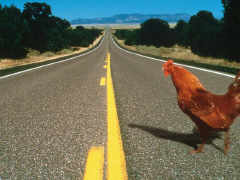 By Rabbi Reuven Spolter
By Rabbi Reuven SpolterBack when I lived in Michigan, one of my sons to studied Kung Fu in a local dojo. One way that they projected the seriousness of martial arts was in the established "sanctity of space" surrounding the dojo. Administrators politely but firmly discouraged cell phone use anywhere in the building. Neither students nor visitors were permitted to wear shoes on the workout mat. These and other minor but firmly enforced rules conveyed the tangible message to students that this dojo was a serious place for serious personal growth. Not surprisingly, this was the most successful martial arts center in Southeastern Michigan. Because the sifu (master) took his craft seriously, his students followed suit and grew both physically and spiritually during their time in the dojo.
After a while, I realized just how similar the dojo's rules are to the halachot related to kedushat beit hakenesset (sanctity of the shul). Halachah establishes very clear and firm rules about the sanctity of the Beit Hakeneset. The Shulchan Aruch (see אורח חיים סימן קנ"א) writes that in a Beit Kenesset:
1. One may not act with frivolity or light-headedness.
2. One may not discuss mundane or trivial matters, like business or world events.
3. One may not eat or drink.
4. One may not kiss his young children – really. (See רמ"א אורח חיים סי' צ"א סעיף א')
Chazal instituted these rules for a very specific reason: the way that we treat and relate to our Beit Hakeneset directly influences not only how we behave there, but how we use that space to relate to Hashem.
I raise this issue because the words of the Sefer Hachinuch on Parshat Terumah caught my attention. Terumah (and Tetzaveh, Vayakhel and Pekudei) relate the blueprints for and construction of the mishkan. But even before they delve into any of the details of the mishkan, Chazal confront a critical introductory question addressed by Shlomo Hamelech at the dedication of the first Beit Hamikdash in Yerushalayim. Why does Hashem command the construction of the Mishkan at all? After all,
Sefer Hachinuch, (see Mitzvah 95) in a long and powerful essay worth reading, explains that while Hashem doesn't need a Beit Hamikdash, we certainly do.כִּי, הַאֻמְנָם, יֵשֵׁב אֱלֹהִים, עַל-הָאָרֶץ; הִנֵּה הַשָּׁמַיִם וּשְׁמֵי הַשָּׁמַיִם, לֹא יְכַלְכְּלוּךָ--אַף, כִּי-הַבַּיִת הַזֶּה אֲשֶׁר בָּנִיתִיBut will God in very truth dwell on the earth? Behold, heaven and the heaven of heavens cannot contain You; how much less this house that I have built!
Hashem commands us to build a Mishkan and Beit Hamikdash to give us a place completely and totally devoted to our spiritual development. We treat that place with reverence, respect and purity because we need that purity to leads us towards Hashem.הלא ידועים הדברים וברורים שהכל להכשר גופותינו, כי הגופות יוכשרו על ידי הפעולות, וברבות הפעולות הטובות ורוב התמדתן מחשבות הלב מטהרות מתלבנות מזדקקות. והשם חפץ בטובתן של בריות כמו שאמרנו, ועל כן ציונו לקבוע מקום שיהיה טהור ונקי בתכלית הנקיות, לטהר שם מחשבות בני איש ולתקן לבבם אליו בו...ומתוך הכשר המעשה וטהרת המחשבה שיהיה לנו שם יעלה שכלינו אל הדבקות עם השכל העליוניBehold these ideas are well-known and clear, that all of this is for the preparation and perfection of our bodies. For the body is prepared through action, and with these continued good acts and their continued steady practice, the thoughts of the heart are purified, clarified and refined. God desires the benefit of [His] creations, as we have said, and therefore He commanded us to set aside a place that will be pure and clean in the greatest possible cleanliness, to purify there the thoughts of man and to refine their hearts toward Him…And through this preparation of action and purification of thought we will have there, we will exalt our intellect to cling with the Exalted Intellect.
 The comments of the Chinuch resonate strongly with me this week. Last Shabbat in my shul in Yad Binyamin, we celebrated the Bar Mitzvah of the son of a neighbor. After the kriat hatorah came the compulsory candy-throwing and the literally dozens of children writhing on the ground, lunging for toffees. In one sense, it was a beautiful scene: a shul packed with children celebrating a young man's entrance into the ranks of Jewish men. But in the real world, pandemonium ensued. Kids ran everywhere, diving between benches at stray candies. Girls threw candy at the men. Men threw candy at men. The davening stopped completely, and even when prayer resumed, it would be hard to argue that many other than the chazzan were actually praying for a long while.
The comments of the Chinuch resonate strongly with me this week. Last Shabbat in my shul in Yad Binyamin, we celebrated the Bar Mitzvah of the son of a neighbor. After the kriat hatorah came the compulsory candy-throwing and the literally dozens of children writhing on the ground, lunging for toffees. In one sense, it was a beautiful scene: a shul packed with children celebrating a young man's entrance into the ranks of Jewish men. But in the real world, pandemonium ensued. Kids ran everywhere, diving between benches at stray candies. Girls threw candy at the men. Men threw candy at men. The davening stopped completely, and even when prayer resumed, it would be hard to argue that many other than the chazzan were actually praying for a long while.Commenting on the prohibition to kiss your children in shul the Mishnah Berurah writes,
Reading the wise words of the Chafetz Chaim, I realize: I am one of those children. My entire generation grew up chasing candy in shul, wandering the aisles waiting for davening to end. True, at least we were in shul. But can we truly claim that we treat our shuls today with a level of sanctity that encourages an atmosphere of sanctity and seriousness that brings us closer to Hashem? Do we honestly refrain from frivolous talk in shul? Do we turn off our cell phones before we enter (that's mostly for men during the week) or do we text quick answers during chazarat hashatz?בשל"ה קורא תגר על המביאים ילדים לבהכ"נ והיינו קטנים שעדיין לא הגיעו לחינוך מטעם כי הילדים משחקים ומרקדים בבהכ"נ ומחללים קדושת בהכ"נ וגם מבלבלים דעת המתפללים ועוד גם כי יזקינו לא יסוקו ממנהגם הרע אשר נתחנכו בילדותם להשתגע ולבזות קדושת בהכ"נ אבל כשהגיעו לחינוך אדרבה יביאנו אתו לבהכ"נ וילמדהו אורחות חיים לישב באימה וביראהThe Shelah strongly criticizes those who bring their children to shul – and this refers to those children who have yet to reach the age of education. This is because small children play and dance in shul and desecrate the holiness of the shul. They also disturb the concentration of those who are praying. Moreover, when they grow older they will not abandon the bad habits that they learned as children, to go crazy and denigrate the sanctity of the shul. But when they reach the age of education quite the opposite is true: one should bring [his children] to shul and teach them the way of life, to sit with awe and fear.
And, perhaps even more importantly, are we raising our children in exactly the same way? Or will we prevent them from repeating our mistakes? Consider these questions the next time you (unwittingly) go to kiss your beautiful baby in shul on Shabbat morning.







